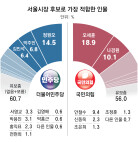[Opinion] Taeguki and Hinomaru
Ahead of its nationwide release in Japan on June 26, Taeguki, a Korean full feature film, is sending shockwaves through Japans cinema district. Last week, when two leading actors, Jang Dong-gun and Won Bin, showed up at the premier, the fans were elated, yelling, I love you. About 30,000 competed for the 2,200 premier tickets distributed over the Web. Those who saw the movie were moved to tears at the twist of fate of two brothers entangled in the war. Film industry insiders expect the movie, which will open at 400 theaters nationwide, will earn revenue on par with Hollywood blockbusters.
The Japanese title for Taeguki is Brotherhood. It was due to consideration for Japanese moviegoers who are unfamiliar with the existence of Taeguki, Koreas national flag. As they follow the subtitles throughout the movie, some of them may end up wanting to learn Korean. Fever for studying Korean has already heated up. As of last year, there are 219 high schools that have Korean courses, a five-fold increase compared to 10 years ago. It came in third as a second foreign language, trailing Chinese and French.
The Korean Wave that captures the minds of the young generation in Japan aside, the controversy over Japans national flag, Hinomaru, and its national anthem, Kimi Ga Yo, is still confusing to me. This is because some school districts began to discipline teachers and students for their refusal to stand up when the flag was raised or when the anthem was recited at graduation or entrance ceremonies. In the Tokyo Prefecture alone, 238 teachers were disciplined. Although more than a half century has passed since the defeat of the Japanese in World War II, a considerable number of ordinary Japanese say Hinomaru still conjures up the specter of militarism.
It is heartbreaking to see such a good-looking actor being drafted into the military [as depicted in the movie], Kokura Raiko, 29 years old, a Won Bin fan, said. Taeguki offers Japanese who have little interest in the military standoff between the two Koreas an opportunity to taste the tragic chapter of Korean modern history. The Korean War-driven economic boom that breathed new air into the then-decimated Japanese economy is even recorded in the official history of Toyota Motor Company. Am I asking too much if I hope Taeguki helps Japanese moviegoers better understand about the historical context between the Korean War and Japan? Probably, since the implications of the Korean War has been watered down even in Korea.
parkwj@donga.com







